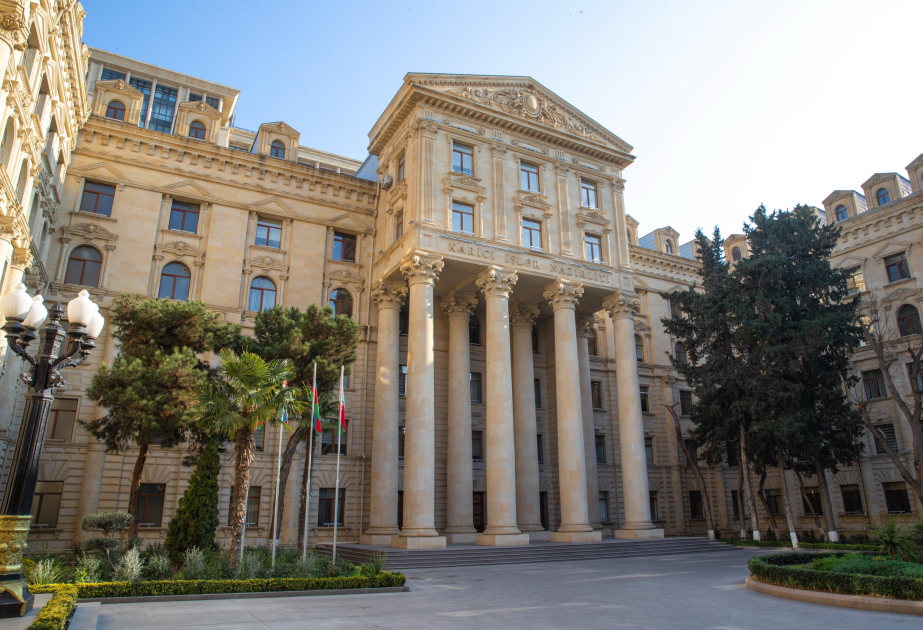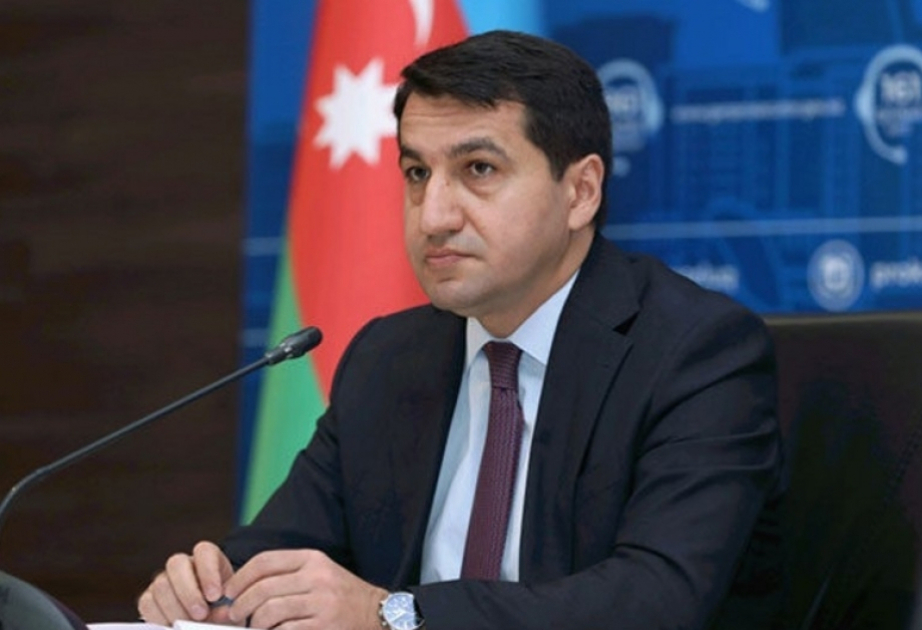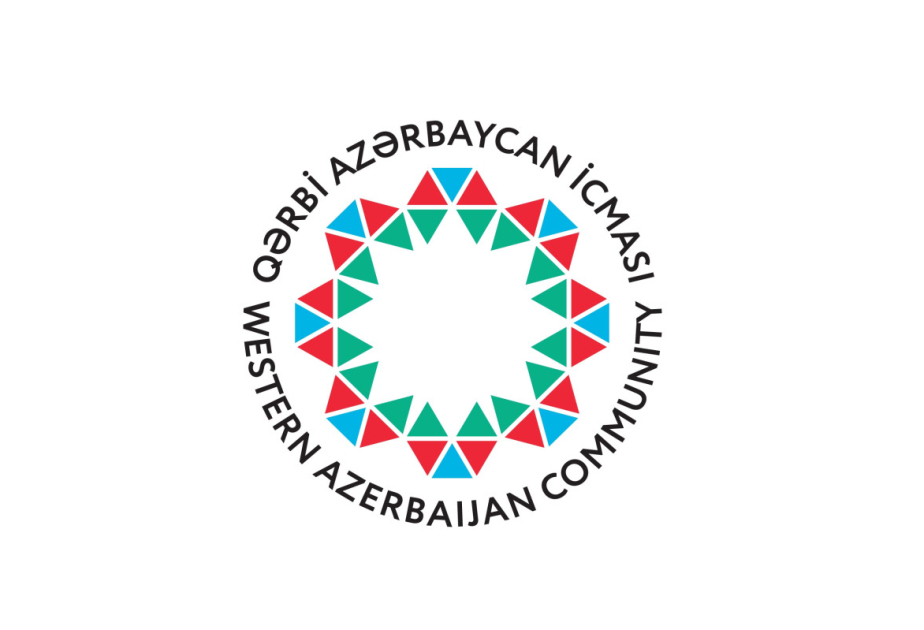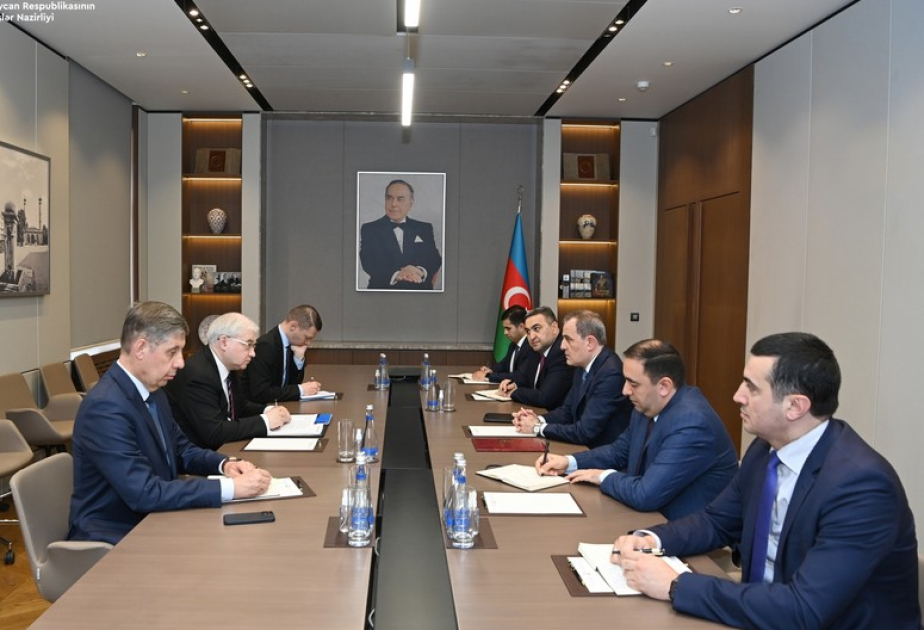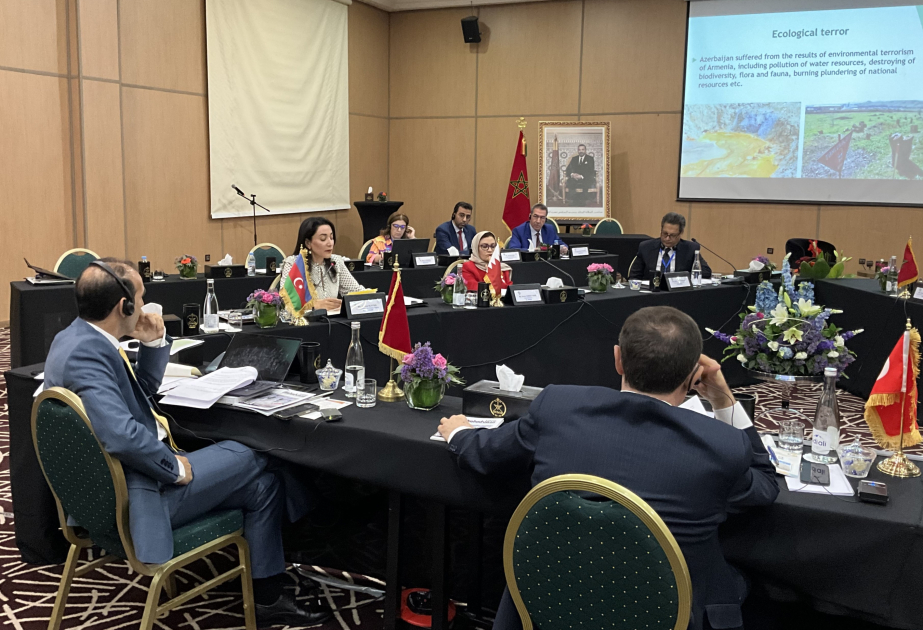POLITICS
Azerbaijan and Central Asia: The Path to Independence
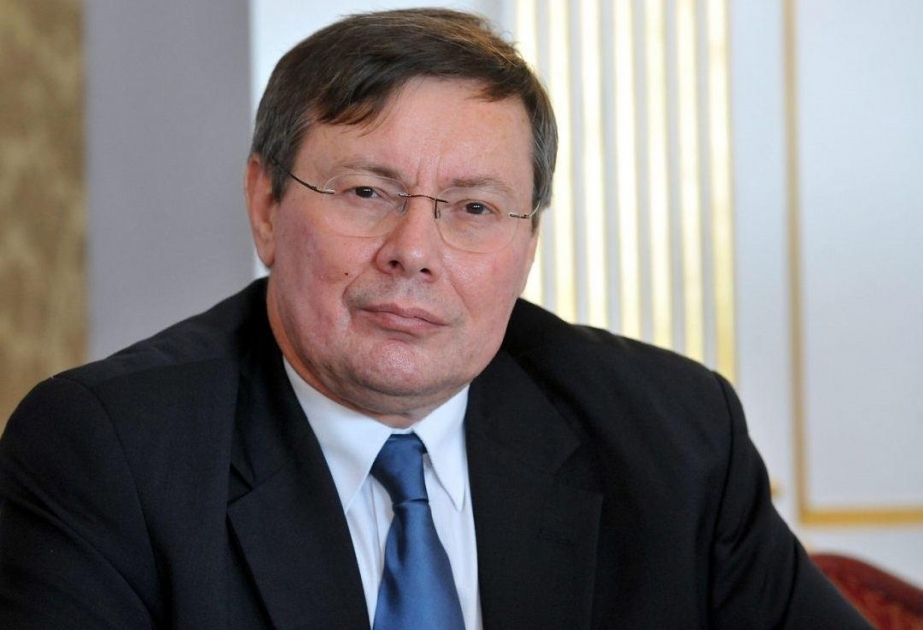
Baku, August 27, AZERTAC
The disintegration of the Soviet Union in 1991 was one of the most significant turns of fate in world history over the past half a century. After this, it was not only Central-Eastern Europe that was allowed to begin a new life since the Yalta Pact order had become null-and-void. Ancient peoples in the vast region between the Caucasus and the Pamir Mountains regained their freedom lost a long time before. Azerbaijan and other states in the Trans-Caucasus won back their independence. As far as territory and population are concerned, Kazakhstan and Uzbekistan became the largest independent states in the Central Asian region.
The independent Kyrgyzstan and Turkmenistan became two further Turkic fellow states in the new world. The Tajik people speaking Iranian and their state constitute the Eastern border line of Central Asia. There was a time when Afghanistan, the land of the Uyghurs and Northern Iran were all part of the historical Central-Asia, of the sometime Turan that existed in a historical geographic region and the history of ideas.
In the mid-19th century this region found itself in the focus of political clashes of world significance that are exerting their influence up to the present day. The Great Game - as it is called in historiography - meant the tension between the policies of conquest of the British and Russian Empires. These policies were cruel to the peoples living in the region. For them they meant the calling into question their traditions, and together with it their subjugation. These people offered tough resistance and not only in Afghanistan but everywhere where they had the opportunity. In this fight there was no difference between beys and shepherds, or teachers and peasants.
There is no doubt that the dismembering of the larger and sui generis Central Asia, the tearing away certain larger regions of it on the basis of various interests of conquest constitute a source of collisions in the region even today. However, history is like this: sooner or later geopolitical power manifests itself everywhere, and it is interested in the real local interests and values only pro forma at most.
From the 18th century till the middle third of the 19th century Russia gradually expanded its power to Trans-Caucasia and Central Asia as far as the border of the sphere of interests of the Ottomans, the Iranians and most of all the British. Besides erecting their checkpoints, the soldiers of the czar were at the beginning collecting only treasures from the khans, beys and emirs under their rule. Today these are the glistening attractions of the State Hermitage Museum. Then the members of the exotic elite themselves had to appear in the palaces in St. Petersburg and admire the Westernization of Russia only to decide whether to accept the subjugation of their own peoples or undertake the service of the Empire. In the larger towns in the region Russian and other merchants settled down, who besides colonization also brought economic dynamism and rearranged the Silk Road with a view to the interests of Moscow and St. Petersburg.
At the same time, they also gained thorough knowledge of the geographical and economic features of the region. The inhabitants of the region provided troops to the armies of the czars to the tune of millions, as well as secretaries general of the party. At the end of the First World War several leaders in the Turkic world (especially the Jadids) had confidence in the Bolsheviks. They believed that they would be able to live their national lives within the Soviet framework, and the modernization of the vast - and with the exception of Baku - backward geographical region might be launched. However, this failed to materialize because with time Sovietization had different aims. The Turkic leaders who had sided with Lenin were convicted in show trials in the 1930s. Some of them were executed, some others were sent to the Gulag, and the fortunate ones managed to escape abroad.
Collectivization (the kolkhozes and sovkhozes) eliminated the traditional ways of life that had had a peculiar coexistence with the administration of the czar both in the ancient agricultural territories along the rivers and the nomadic animal husbandry on the expanses of the steppe. The perishing of the animals herded together to centralized stations caused a pandemic which proved to be fatal, especially for the Kazakhs. As a consequence of this, famine similar to the one in Ukraine (Holodomor) flared up. It is called by the Kazakhs asharshylyk. Millions of people fled from their homelands to Mongolia and China.
The Second World War brought some concessions but as a result of life during the war in the hinterland, large ethnic Russian blocks of people emerged in the region. After the occupation of Berlin large crowds of disabled soldiers arrived back home. And the ones who had been taken prisoner by the Germans - as it was described by Chinghiz Aitmatov in an excellent way - appeared on the radar of the KGB. The thaw of the Khrushchev times was swept away by the concepts of Leonid Brezhnev and his advisers to devastate nature: the breaking of the virgin lands on the steppe has caused damage to the environment that can be felt even today.
One has to add that the Soviet leadership was making attempts to avert the emergence of regional economic inequalities. It was the regions rich in mineral resources and Uzbekistan - forced to cultivate cotton in the form of monoculture - that were covering the costs of developing the poorer regions in Central Asia. They were also contributing to the budget of the Soviet Empire to a significant degree.
The leaders of Azerbaijan and Central Asia perceived of the crisis of the last years of the Soviet Union very well since many of them had been serving in high positions in Moscow. With the advent of the policy of openness (Glasnost) of Gorbachev, regional and ethnic aspirations were manifested all over the Soviet Union. In Central Asia these were by far not as forceful as the ones in the Baltic region or in the Trans-Caucasus. However, for those who were familiar with the region (and among them there were many Turkologists) it was obvious already in the 1980s that from Baku to Bishkek (called Frunze at that time) new national groups of intellectuals had been born that rely on the local linguistic and folklore traditions and who would sooner or later become vocal. Ancient traditions, even if a little shabby, started melting the cracked Soviet shield of ice and behind it serious demographic facts with a new force.
The coup attempt committed on 19-22 August 1991 in order to contain the processes of change in the Soviet Union and to bring the retrograde forces back to power put the whole of the region almost in an emergency. The leadership of the member republics executed distinct national about-faces and declared their seceding from the Soviet Union one by one.
The past thirty one years have brought great changes in the history of Azerbaijan and Central Asia. Strong nation states have emerged despite the fact that in many places several conditions were missing due to the distortions and belatedness in Soviet times. The territorial integrity of Azerbaijan was restored on 8 November 2020 and the rebuilding of Karabakh is at full force. The Azerbaijan-Hungarian relationship has also come into prominence within the scope of international organizations especially in the period following the historic victory of Azerbaijan that ensured the restoration of its territorial integrity in the aftermath of the honorable “44-Day War”.
Moreover, the national legislatures have reformed the legal system with resolute efforts to modernize, and new constitutions have been adopted. The position of the national languages has been strengthened and their vocabularies have successfully been enlarged in all the fields of public, as well as of intellectual life. Most of these countries have introduced the Latin scripts as their new alphabet. The Russian language has preserved its peculiar role of mediator in the whole of the region, and through it a certain amount of useful and reasonable knowledge about the Russian world between St. Petersburg and the Pacific Ocean has remained.
In the course of the past decades the structure of education has strengthened in each of these states. Young people constitute the most populous social layer in almost all of these countries. In all regional centers universities have been established, and in such a way, both the number of students and the cross sections in higher education have fundamentally changed. Some governments have sent a high number of young people to study in the United States, Türkiye, Great Britain, and in the past few years to Hungary as well.
The new intellectuals in Azerbaijan and Central Asia know very well what is happening in the world and are aware of the differences in the paths to modernization, just like with the potential and naturally the contradictions of their homelands. They are especially cognizant of their particular political and economic features caused by a social structure that is different from the “Western” one. They are also aware of the role that Islam plays in the region. During the natural course of one generation replacing another it will be their task to carefully and maturely plan the future in a situation in which the population of the region is growing, young people have to be provided with jobs and living standards must be raised.
The raw materials of the states can more or less secure the necessary sources. However, there is also a need for creating new, competitive industries, as well as for introducing new technologies in agriculture which is struggling with aridity and droughts due to climate change. This is an awesome process that requires knowledge of the challenges of the fourth industrial revolution and the global geostrategic impact of it, as well as gaining the political support of the societies that are behind their time. In Baku and in the capitals in Central Asia, it is well known that the Central-Eastern-European models - including that of Hungary - serve as references, and this is the reason why it is necessary that as many as possible young people should be studying in Budapest, Prague, Warsaw and in the other universities of our region.
Because of traditions and the obvious facts of geography, Russia is a special partner for Azerbaijan and Central Asia. However, due to the common linguistic and cultural roots, Türkiye also falls into the same category - peculiar Turkic geo-cultural forces are at work in the region. Ankara was the first to recognize the independence of these new states, and during their transitional phases it offered assistance where it could. In such a way, in the past decades special cooperation has been established from Istanbul to Bishkek.
An extremely important mechanism is the inter-governmental form of cooperation established in 2009 - the Cooperation Council of Turkic-Speaking States, renamed to the Organization of Turkic States (OTS) on 12 November 2021, the founding states of which are Azerbaijan, Kazakhstan, Kyrgyzstan and Türkiye. Uzbekistan joined the organization in 2019. The organization has attained a multifaceted dimension with the addition of Hungary (2018) and Turkmenistan (2021) as Observers.
The proposal to invite Hungary was made by the member states due to our historical, economic and cultural ties. It should be noted that to note that the Representation Office of the OTS in Hungary is fully committed to broker the coordination with its partners in contributing to the recovery and reconstruction process of the liberated territories of Azerbaijan in the upcoming period, which without doubt will present many opportunities for the Hungarian enterprises and companies. Hungary has shown great determination to take part in the processes and programs in Azerbaijan that will inject a fresh driving force in this partnership built on a solid foundation. The aftermath of the 44-Days War will not only usher a new era, but also will pave the way for enduring peace and stability by reviving cooperation and interconnectivity across the whole region.
In the past decades inter-Turkic relations have undergone tremendous changes. The sense of wonder at one another has been replaced by meaningful bilateral relations, and a comprehensive inter-governmental cooperation lasting at least for a decade has started. However, the path of moving further is integration. It is not easy to achieve this since several member states of the OTS belong to different economic and security cooperation systems. But the process is aided by the fact that in the past decade the Turkic world has become an organic geopolitical unit. This situation creates even a necessity.
The region lying between the Tian Shan Mountains and the Aegean Sea lives in a system of similar modernization and security challenges. The fact that the geostrategic vectors of China and Russia meet in the Turkic world highly increases the value of the Euro-Asian zone in the global context as well. For the past decade a continental corridor of transport and economy is being built between Western China and Europe which intends to become the rival of certain sea lanes. This is causing changes in the whole of the region never seen before, and forces Ankara, Baku, Bishkek, Nur-Sultan and Tashkent to forge comprehensive cooperation with a new meaningful content. Today the OTS is no longer simply about the common linguistic and cultural ties but about the building of a vast geopolitical region of 150 million people on the basis of new aspects.
When we take a look at the past decades we have to state that the achievements speak for themselves. Well functioning states have been established in harmony with their peculiar social structures and the post-Soviet political thinking, and this has created stability already in the period of seceding from the Soviet Union that was extremely tough and full of ordeals. Market economies have been set up, and most of these states managed to settle the issue of land ownership. All the governments have good relations with the sizeable Russian population living in these countries, and these communities are part of public and social life. In certain states there are, naturally, regional conflicts which are the characteristic consequences of the former tribal relations. This fact has led to several crises in the government, especially in Kyrgyzstan. The steps towards modernization have often been discouraged by the realization that they might produce losers and that the changes might devaluate the old groups of interest. Most countries in the region are conducting policies of cautious reforms. At the moment, it is in Tashkent that the wind is bringing interesting news: the government has launched a comprehensive program of structural reforms. Since Uzbekistan has a population of 35 million, the success of this program is vitally important for the whole of the region.
When I was a university student of Turkish in the 1970s and some of my teachers told me during the seminars on Central Asian peoples that the time would come when they could regain their independence, I had serious doubts. But at that time the Soviet rule in Hungary also seemed to be infinite. When around 1988 one could already perceive the shock of the world of Moscow and we, Hungarians were also moving closer to our freedom, the chance of the disintegration of the Soviet Union also loomed on the horizon. More and more books were published in the West on the peoples under the Soviet rule - forgotten history came back to life. At Christmas 1991, I, as a Turkologist wrote a letter to Foreign Minister Géza Jeszenszky, asking him that Hungary should be among the first countries that recognize the independence of the new states. I soon learned that by that time the Hungarian diplomats had already visited Baku and the Central Asian capitals and had already taken the first steps. In the summer of 1992 I joined the Foreign Service.
I was tasked to establish diplomatic relations with the states in Trans-Caucasia and Central Asia, as well as the preparing of the first briefs on these countries. These documents have already found their way to the archives. Between 1992-1993, I managed to visit almost all the capitals where the Foreign Ministries had already started their work with a few colleagues. They were either former Soviet diplomats or intellectuals speaking Western languages. They were all very happy to receive us, Hungarians. I can tell you that they had, actually, been waiting for us. In April 1993, a large delegation headed by Political State Secretary András Kelemen paid a visit to these new states. We opened our first embassy in Almaty in Kazakhstan. A lot of time has passed since then. Today several hundred people work in the Foreign Ministries in the region. Azerbaijan and the Central Asian countries have become distinguished members of the international community, their flags fly in front of the various institutions of the United Nations. I am pleased that in most countries of the Turkic region Hungary runs an embassy and the number of missions from the region in Budapest will hopefully further increase. Today, majority of the OTS Member States (Azerbaijan, Kazakhstan, Kyrgyzstan, Türkiye) have diplomatic missions in Budapest.
In the past the name of Hungary had a pleasant ring to it in Azerbaijan and Central Asia and still has the same. However, diplomacy is not only about the image of a country, rather about content. In the 21st century these include the expansion of economic ties, the connecting of innovation capabilities, joint university education programs and cooperation in security policy. These are what the relations of Hungary with the OTS have covered since 2018 - building the future in a region which is to be discovered in many ways. In other words, it means planting trees, while knowing that the branches will bear fruits only after several years. But our friends in the Turkic world are doing the same - they are converting their knowledge about Hungary from the fairy world of legends to the practical life of today and tomorrow, as well as the planning sectors of developing the future. In this, friendship, personal sympathy and the interests constitute a unique mixture within the almost pressing system of global challenges of modernization.
János Hóvári
The author is a historian, a Turkologist, an Ambassador, and the Executive Director of the Representation Office of the Organization of Turkic States in Hungary
